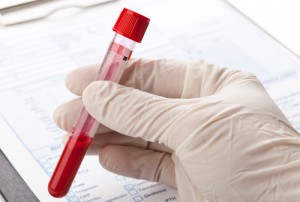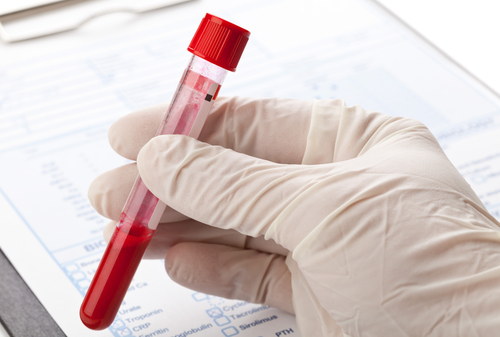 A recent study published in the Breast Cancer Research journal suggests that tumor cells circulating in the blood of metastatic breast cancer patients can be as accurate as tumor biopsies in genomic read-outs.
A recent study published in the Breast Cancer Research journal suggests that tumor cells circulating in the blood of metastatic breast cancer patients can be as accurate as tumor biopsies in genomic read-outs.
This research was lead by Sandra V. Fernandez, Ph.D., assistant professor of Medical Oncology at Thomas Jefferson University, the academic medical center in Philadelphia.
Genetically speaking, metastatic cancers are constantly changing; which means that a treatment that worked positively for a patient today may not stop cancer growth tomorrow. Throughout the cancer course, patients are constantly subject to biopsies to evaluate their cancer’s genomic makeup. However, not all patients can repeat biopsies, since it is an invasive procedure that may not be possible due to inaccessible lesions.
According to the study results, tumor cells isolated from triple negative breast cancer patients’ blood can reveal similar cancer-driving mutations as the ones detected from a standard biopsy. Thus, circulating tumor cells (CTCs) can, in the future, replace tissue biopsies and optimize treatments.
CTCs are tumor cells shed from primary tumors or its metastases, that circulate in the peripheral blood of metastatic cancer patients. They were discovered for their diagnostic potential in 2004. Counting CTCs can provide an estimated idea of the aggressiveness of a patient’s cancer, if it is stable or if it is responding to therapy. “Our work suggests that these cancer cells in the blood also accurately reflect the genetic status of the parent tumor or its metastases, potentially giving us a new and easy to source of genomic information to guide treatment,” explained Sandra Fernandez, first author of the study, Ph.D., assistant professor of Medical Oncology at Thomas Jefferson University in the Jefferson’s press release.
[adrotate group=”3″]
This innovative research focused on analyzing the genomic signature of individual tumor cells in circulation. In order to isolate single tumors cells from the blood, the authors used a recent technology called DEPArray. They managed to compare circulating tumor cells (CTCs) with tissue biopsies removed surgically from 2 patients with inflammatory breast cancer. Breast tissue samples from both patients presented a specific mutation in the p53 gene region, a cancer-driving gene. The researchers studied this very same mutation in many CTCs isolated from both patients. They discovered that in several of the collected CTCs, the mutations corresponded with the tumor biopsy, nevertheless in 1 patient, some of the CTC had an extra mutation. “Since inflammatory breast cancer is a very rapidly changing disease, we think this additional mutation may have been acquired after the original surgical biopsy was taken,” explained Dr. Fernandez in the press release. When the additional mutation on the p53 gene was found they realized that the blood used to isolate CTCs was drawn one year after the breast tissue biopsy, justifying that exception.
CTCs appear to be heterogeneous and further studies are required to analyze a larger number of genes and samples. Nonetheless, this work already evidences how CTCs may offer the possibility of capturing most of the cancer’s genomic information. Through blood analysis, guidance and valuable genomic references to better decide which treatment should be delivered to which patient, can be provided.

